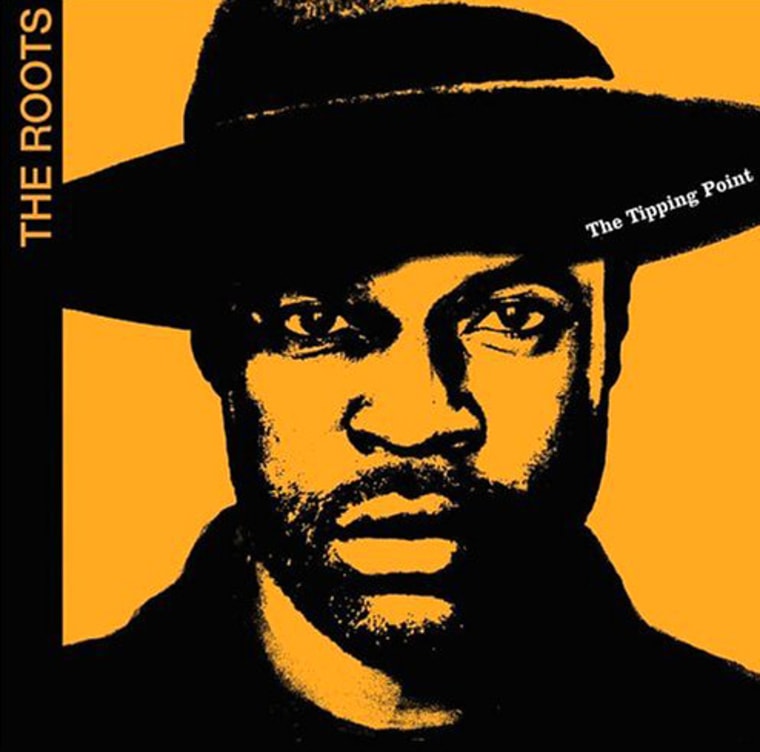In this week's new releases, the Roots try to be more accessible on "The Tipping Point" and the Polyphonic Spree get 'Heavy'.
“The Tipping Point,” The Roots
Always expect the unexpected from the Roots. On their genre-expanding 2002 album “Phrenology,” the Philadelphia hip-hop band flirted with punk, downshifted neo-soul into a drum n’ bass workout, and imagined their guitar-riffing hip-hop as rock ’n’ roll’s offspring. The disc was heady, ambitious and undeniably progressive.
Now on “The Tipping Point,” instead of further tinkering with song structure and metaphor, they’ve opted to make their sound more accessible. Down to a streamlined, 10-song CD (actually, there are two hidden tracks, one with a hook courtesy of comic Dave Chappelle), the new disc borrows from the past, eyes the future yet manages to remain some of today’s most vital hip-hop.

More than any past release, the disc showcases the nimble rhymes of frontman Black Thought. He displays a socially aware side, dropping a couplet about the Patriot Act on the reggae-tinged “Guns Are Drawn” and societal ills on “Why (What’s Goin’ On?).”
In a homage to old school rap, Thought races through uncanny imitations of classic Big Daddy Kane and Kool G Rap verses on “Boom” — but only after he drops his own barrage of boasts on “Break Beat.”
However, for all the lyrical fury, the music is as funky as ever. Great sample choices propel two of the disc’s best moments — Sly and the Family Stone’s “Everybody is a Star” gets poached on the disc-opening “Star” while “Stay Cool” extends the same beguiling Al Hirt snippet used on De La Soul’s 1993 “Ego Trippin’ (Part Two).” There’s even a hidden version of George Kranz’s dance classic “Din Daa Daa.” All these treats clock in at under an hour. With “Tipping Point,” the Roots prove that less can be indeed much more.— Brett Johnson
“Together We’re Heavy,” The Polyphonic Spree
The Polyphonic Spree have enough members to staff the average performance of Handel’s “Water Music” with maybe a few to spare. The group, an anomaly in a pop music scene that often focuses on a single singer or rapper, counts 23 people as members on its web site.
Under the leadership of singer Tim DeLaughter, the Dallas group dons white or multicolored robes when they perform — a visual metaphor for their second record, “Together We’re Heavy,” which blends many voices and instruments into a big, banging wall of sound.
It was a task to make “Heavy” cohesive with so many elements (horns, strings, keyboards, drums, bass, guitar and a 10-person choir), and for that the Spree should get compliments. But if the album has a fault, it’s 10 songs flow into one another, at times making it hard to distinguish one track from the last.
On “One Man Show,” the album’s best song, the band moves effortlessly, mixing rock and classical as shimmering strings give way to heavy piano riffs and then a haunting operatic vocal by Jennifer Jobe.
DeLaughter holds it all together with his singing, which has a slight quaver making him sound a little frayed amid all the instrumentation.
“Together We’re Heavy” persevers because of DeLaughter and his group’s limitless energy. Perhaps The Polyphonic Spree should tackle “The Messiah” next.— Mark Donahue